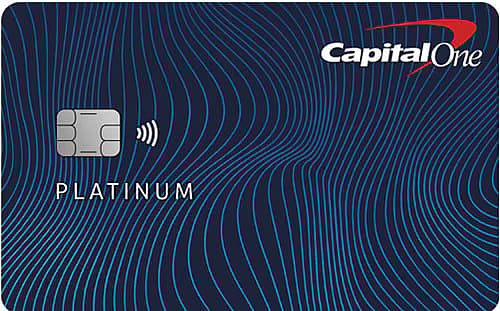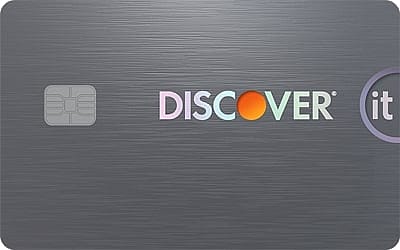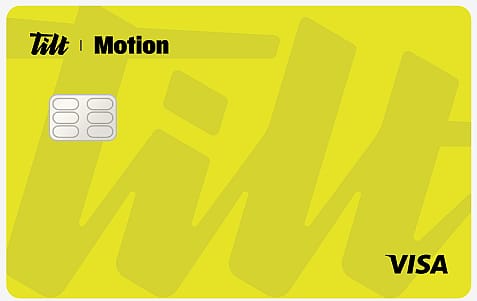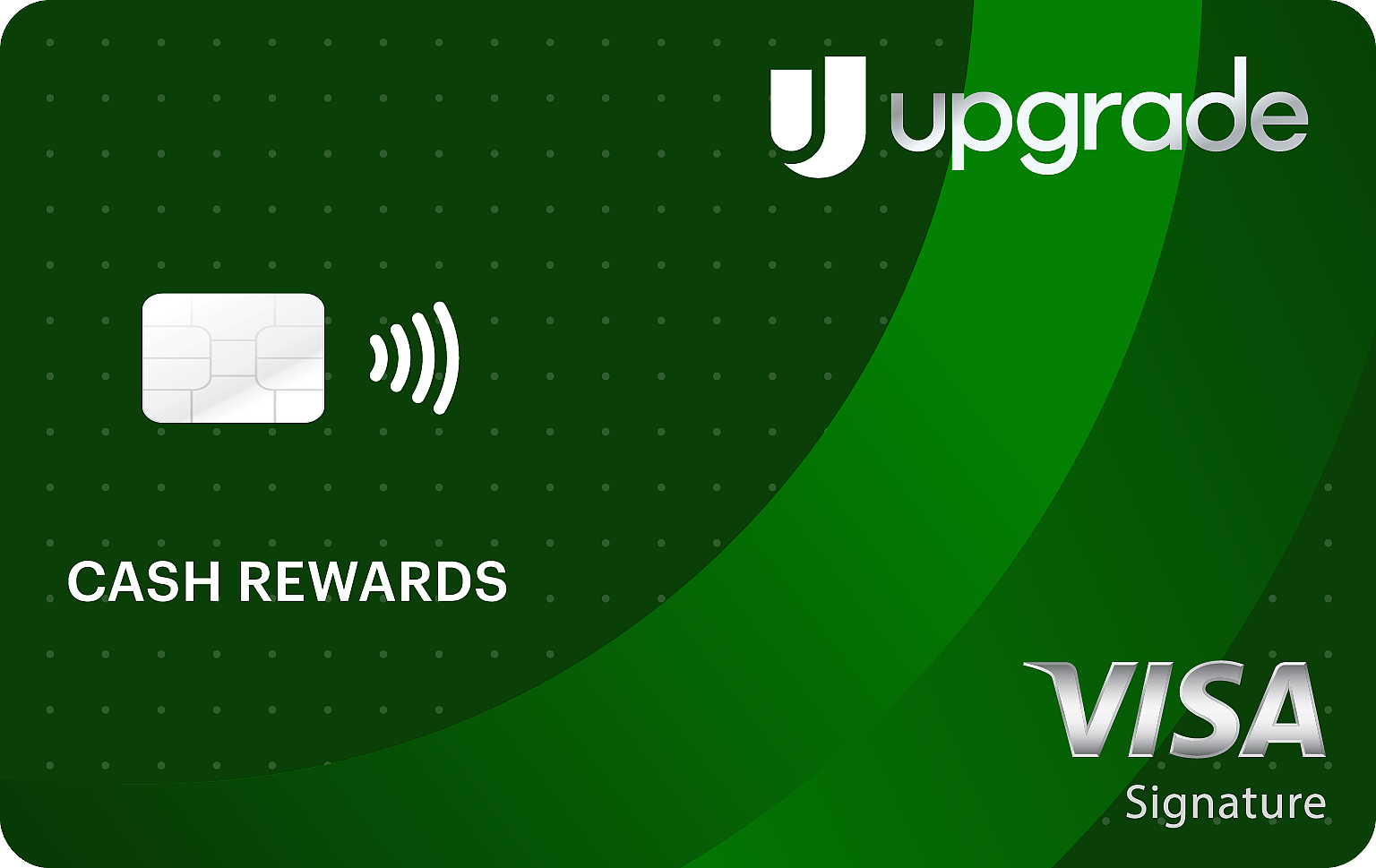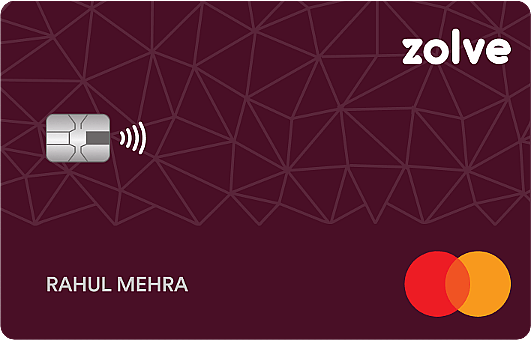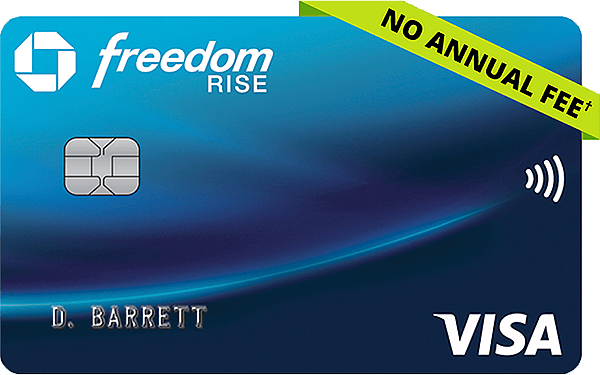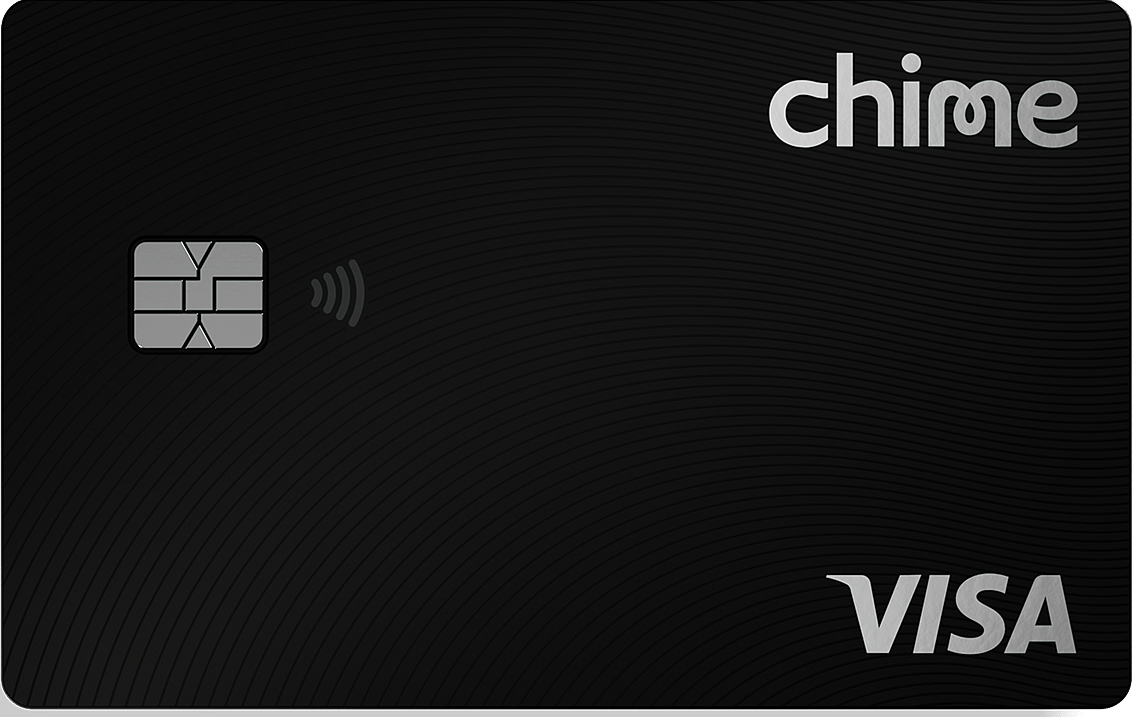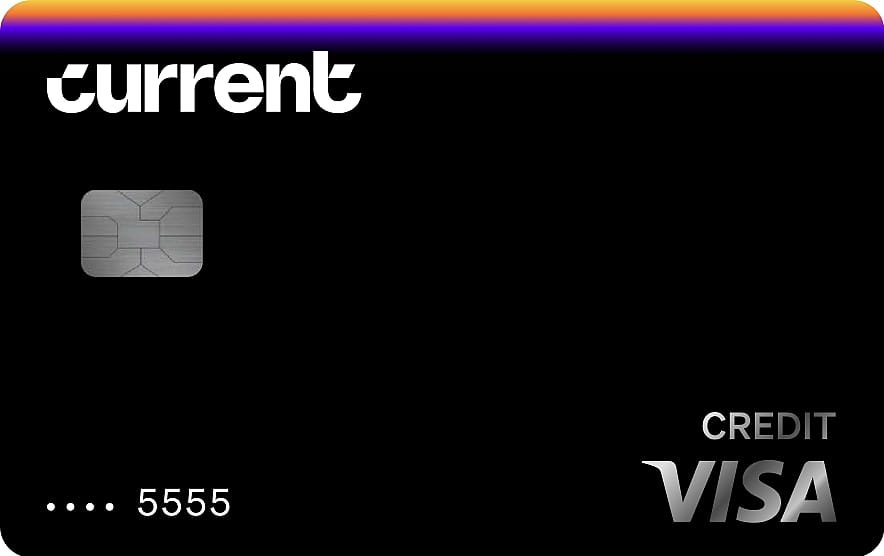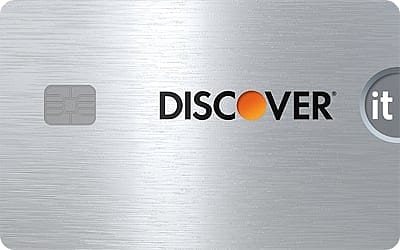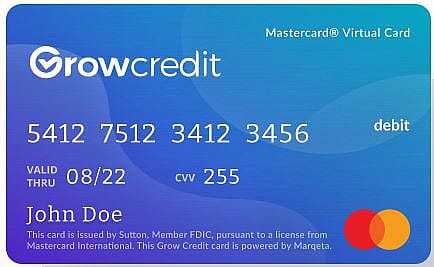Best Credit Cards to Build Credit of March 2026
Many or all of the products on this page are from partners who compensate us when you click to or take an action on their website, but this does not influence our evaluations or ratings. Our opinions are our own.
Many or all of the products on this page are from partners who compensate us when you click to or take an action on their website, but this does not influence our evaluations or ratings. Our opinions are our own.
Credit cards can be an effective tool to build credit whether you’re just starting out or seeking a second chance, but they aren't always easy to get. Options may be limited depending on a card issuer's credit history requirements. Here are a few cards to consider that report to all three credit bureaus, the companies that gather the information used to calculate credit scores. With your activity on file at all three, future lenders can get a full picture of your credit regardless of which bureau they use to review your credit report.
Our pick for: Secured card with deposit flexibility
Apply Nowon Capital One's websiteon Capital One's websiteAnnual fee$0Minimum deposit$49, $99 or $200Recommended credit scoreRegular APR28.99% Variable APRRewards rateN/AIntro offerN/ACard details
- No annual or hidden fees. See if you're approved in seconds
- Building your credit? Using the Capital One Platinum Secured card responsibly could help
- Put down a refundable security deposit starting at $49 to get at least a $200 initial credit line
- You could earn back your security deposit as a statement credit when you use your card responsibly, like making payments on time
- Be automatically considered for a higher credit line in as little as 6 months with no additional deposit needed
- Enjoy peace of mind with $0 Fraud Liability so that you won't be responsible for unauthorized charges
- Monitor your credit score with CreditWise from Capital One. It's free for everyone
- Get access to your account 24 hours a day, 7 days a week with online banking to access your account from your desktop or smartphone, with Capital One's mobile app
- Top rated mobile app
- View Rates & Fees
NerdWallet's take
Secured cards typically require an upfront deposit of several hundred dollars, and the amount determines your credit limit, but the Capital One Platinum Secured Credit Card may offer valuable flexibility.
Read full reviewProsThe card may allow you to qualify for a credit limit of $200 with a deposit starting at $49, depending on eligibility. After six months, with responsible use, the Capital One Platinum Secured Credit Card can further bump up your credit since the issuer automatically considers you for a higher credit limit without requiring an additional deposit. A higher limit can lower your credit utilization ratio, which can be good for credit scores.
ConsThis card doesn't earn rewards, which isn't uncommon for secured credit cards, but some cards do offer them.
2026 Best credit card for building credit
Apply Nowon Discover's website,on Discover's website, or call 800-347-0264Annual fee$0Minimum deposit$200Recommended credit scoreRegular APR26.49% Variable APRBalance transfer intro APR10.99% intro APR on balance transfers for 6 monthsRewards rate1%-2%CashbackIntro offerCashback Match™Rewards breakdown
2%Cash back at Gas stations on up to $1,000 in combined purchases each quarter, automatically.2%Cash back at Restaurants on up to $1,000 in combined purchases each quarter, automatically.1%Cash back on all other purchases.Card details
- No credit score required to apply. No Annual Fee.
- Your secured credit card requires a refundable security deposit, and your credit line will equal your deposit amount, starting at $200. Bank information must be provided when submitting your deposit.
- Automatic reviews starting at 7 months to see if we can transition you to an unsecured line of credit and return your deposit.
- Earn 2% cash back at Gas Stations and Restaurants on up to $1,000 in combined purchases each quarter, automatically. You'll still earn unlimited 1% cash back on all other purchases.
- INTRO OFFER: Unlimited Cashback Match for all new cardmembers—only from Discover. Discover will automatically match all the cash back you’ve earned at the end of your first year! There’s no minimum spending or maximum rewards.
- Get an alert if we find your Social Security number on the dark web. Activate for free.
- Terms and conditions apply.
- View Rates & Fees
NerdWallet's take
The Discover it® Secured Credit Card is one of the few secured card options that offers rewards. For no credit or bad credit alike, it's an excellent credit-building tool.
Read full reviewProsThis card earns 2% cash back at gas stations and restaurants, on up to $1,000 in combined purchases each quarter, and 1% cash back on all other purchases. It requires a minimum of $200 as a security deposit, but you'll eventually get that back if you keep the account in good standing and either close it to get a regular card with a different issuer or use Discover's path to upgrade to one of its regular cards. If you stick with Discover, the wait may not be too long: The issuer starts reviewing your account at seven months to see if you can qualify for a regular Discover credit card.
ConsThe minimum required security deposit is $200, which is typical among secured credit cards, but some options for building credit may accept a lower amount or avoid a deposit requirement.
Our pick for: Accessibility
Annual fee$0Minimum depositN/ARecommended credit scoreRegular APR28.24%-33.24% Variable APRRewards rate1%-10%CashbackIntro offerN/ARewards breakdown
1%Cash back at select national merchants.Card details
- No annual fee, and no security deposit required
- 1-10% cash back at select national merchants
- No Credit Score? No problem. Credit history isn't required for approval
- Credit limit increases in as early as 4 months for qualified borrowers
- Build credit alongside hundreds of thousands of Tilt card members
- Tilt reports to all 3 major credit bureaus
- Zero liability fraud coverage
- Card issued by WebBank
- View Rates & Fees
NerdWallet's take
The $0-annual-fee Tilt Motion features fewer barriers to access than other unsecured cards for bad credit. There are no sneaky hidden fees, and you can even earn modest rewards.
Read full reviewProsThe card's proprietary underwriting process means it might not rely solely on credit scores to determine eligibility and may opt to also evaluate real-time spending data like your income and expenses. It reports to all three major credit bureaus and features multiple paths to a potential credit limit increase.
ConsThere's no upgrade path to a better Tilt card once you've used this one to establish credit. To earn rewards, you'll need to shop with specific merchants. Also note that in order to have factors like your real-time spending data considered, you may need to link your bank account.
Our pick for: Flexibility for fair credit
Apply Nowon Upgrade's websiteon Upgrade's websiteAnnual fee$0Minimum depositN/ARecommended credit scoreRegular APR14.99%-29.99% APRRewards rate1.5%CashbackIntro offer$200 bonus when you also open a Rewards Checking Preferred account and make 3 debit card transactions.Rewards breakdown
1.5%Unlimited Cash Back on card purchases every time you make a payment.Card details
- $200 bonus after opening a Rewards Checking Preferred account and making 3 debit card transactions
- 1.5% unlimited cash back on every purchase
- No annual fee
- See if you qualify in seconds with no impact to your credit score
- Combine the flexibility of a card with the predictability of a personal loan
- Shop smarter with Upgrade Shopping! Get exclusive savings at stores, restaurants, and more
- Enjoy Visa Signature benefits, like Roadside Dispatch, Price Protection, Extended Warranty Protection, and more
- Contactless payments with Apple Pay® and Google Wallet™
- Mobile app to access your account anytime, anywhere
- Use your card anywhere Visa is accepted
- Relax knowing that you are protected in case of unauthorized transactions with Visa’s Zero Liability Policy
- View Rates & Fees
NerdWallet's take
The $0-annual-fee Upgrade Cash Rewards Visa® can be an ideal choice if you plan to carry a balance, want the convenience of equal monthly debt repayments and can pre-qualify for a favorable interest rate. It also earns 1.5% cash back on all purchases.
Read full reviewProsThe Upgrade Cash Rewards Visa® earns rewards on par with cards for good or excellent credit. And unlike many of those cards, any unpaid balance is automatically converted into an installment loan with a fixed monthly payment, much like a personal loan. See what terms you'd qualify for without a hard credit inquiry.
ConsYou may qualify for better terms with a traditional personal loan, depending on your financial situation. As of this writing, the card is unavailable to residents of Iowa, West Virginia, Wisconsin, and Washington, D.C.
Our pick for: International students and immigrants
Apply Nowon Zolve's websiteon Zolve's websiteAnnual fee$0Minimum depositN/ARecommended credit scoreRegular APR19.50%-39.50% Variable APRRewards rate1%-10%CashbackIntro offer$15Rewards breakdown
1%unlimited cashback on all spends.Card details
- $15 Welcome Points after completion of tasks and milestone activities detailed in the application process.
- $100+ Overall Annual Benefits.
- 1% Unlimited Cashback on all spends.
- Up to 10% Cashback on 7k+ merchants.
- No SSN or prior credit history required.
- Build credit history from Day 1 in the US.
NerdWallet's take
The Zolve Classic Credit Card is highly accessible and affordable, and it even earns modest rewards.
Read full reviewProsThere are few obstacles to getting this card, even if you're new to the U.S. The annual fee is $0, there's no security deposit or credit history requirement, and it's possible to get it without a Social Security number.
ConsThere's currently no clear upgrade path to a better product from Zolve when you're ready. Plus, the APR can range up to nearly 40%, so you won't want to carry a balance. If you do happen to have a Social Security number, you can likely do better with other starter cards in terms of rewards and flexibility.
Our pick for: Secured card with no credit check
Apply Nowon Capital Bank's websiteon Capital Bank's websiteAnnual fee$0Minimum deposit$300Recommended credit scoreRegular APR28.24% Variable APRRewards rate1%-10%CashbackIntro offerN/ACard details
- Use your Opensky card to pay for TurboTax and get up to $20* on us.
- No annual fee – keep more money in your pocket!
- No credit check required – 89% approval rate with zero credit risk to apply!
- Earn up to 10% cash back on everyday purchases
- Boost your credit score fast—2 out of 3 opensky® cardholders see an average increase of 47 points after 6 months
- Track your progress with free access to your FICO® score in our mobile app
- Build your credit history with reporting to all three major credit bureaus: Experian, Equifax, and TransUnion
- Seamless payments—add your card to Apple Pay, Google Pay, and Samsung Pay
- Start with as little as $300 – Secure your line with a refundable security deposit
- Fast and easy application—apply in minutes with our mobile-first experience
- Flexible payment options—pick a due date that works for you
- More time to fund—spread your security deposit over 60 days with layaway
- Activation of the TurboTax offer is required prior to purchase to qualify for a reward. To activate, click the offer in Opensky Rewards, available through the Opensky credit card mobile app or website. Offer valid 12/1/25–4/18/26. Additional TurboTax terms apply; see TurboTax reward details for more information. See Opensky Rewards Terms & Conditions for details on reward timing.
- View Rates & Fees
NerdWallet's take
You don't have to undergo a credit check to apply, and you don't need a bank account to qualify. If these are areas of concern for you, the opensky® Plus Secured Visa® Credit Card is definitely worth a look.
Read full reviewProsThe issuer doesn’t run a credit check on opensky® Plus Secured Visa® Credit Card applicants, making this an attainable option for people with severely damaged credit. You can make your deposit and pay your bills with a debit card, wire transfer, check or money order, making it one of the few secured cards that doesn’t require a traditional bank account.
ConsThe regular minimum deposit is higher than most secured cards require. The interest rate on this card is also considerably higher than the opensky's original card, so avoid carrying a balance. Also, your options for upgrading to an unsecured card are limited.
Our pick for: No-annual-fee card with rewards
Apply Nowon Chase's websiteon Chase's websiteAnnual fee$0Minimum depositN/ARecommended credit scoreRegular APR25.24%Rewards rate1.5%CashbackIntro offer$25Rewards breakdown
1.5%Cash back on all purchases.Card details
- Increase your approval chances - Having a Chase checking or savings account with a balance of at least $250 will increase your chances of getting approved for Chase Freedom Rise®
- Earn Cash Back - With Chase Freedom Rise®, you can establish credit while earning 1.5% cash back on all purchases. Cash Back rewards do not expire as long as your account is open and there is no minimum to redeem for cash back.
- Earn a $25 statement credit after signing up for automatic payments within the first three months of opening your account. With automatic payments, just pick a date and dollar amount to make sure your Credit Card gets paid on time.
- Credit Limit Increase - As a Freedom Rise® cardmember, you'll be evaluated for a credit line increase in as soon as 6 months. Your credit line is the maximum amount of money you can spend on your Freedom Rise® Card
- Free Credit Score - Track your credit score and learn how to build it with Chase Credit Journey.
- No Annual Fee - You won't have to pay an annual fee for all the great features that come with your Freedom Rise® Card.
- Member FDIC
- View Rates & Fees
NerdWallet's take
The Chase Freedom Rise® is an ideal credit-building companion, mostly because you don't need a credit history to be approved in the first place. The card's annual fee is $0, it offers solid rewards on everything you buy, and there's an upgrade path when you're ready.
Read full reviewProsThere's no annual fee or upfront deposit, nor do you need a credit history to qualify. Beyond that, you'll earn 1.5% cash back on all purchases, you may be evaluated for a higher credit limit in as soon as six months, and Chase will review your account each anniversary for a potential upgrade to the Chase Freedom Unlimited®.
ConsYou may end up needing to take extra steps to qualify: Chase says approval odds will be higher if you have, or can open, a Chase checking or savings account with at least $250 in it. Also, even though it's a great option for credit builders, it's not meant for credit rebuilders. If you have poor credit (generally, FICO scores below 630), you likely won't qualify.
Our pick for: Easy account management and guardrails
Annual fee$0Minimum depositN/ARecommended credit scoreRegular APRN/ARewards rate1.5%CashbackIntro offerN/ARewards breakdown
1.5%Cash back on rotating categories with direct deposit.Card details
- The secured Chime Card™ is issued by The Bancorp Bank, N.A. or Stride Bank, N.A., Members FDIC, pursuant to a license from Visa U.S.A. Inc. and may be used everywhere Visa credit cards are accepted. Please see the back of your card for its issuing bank.
- No credit check to apply, no annual fees or interest⁴, and no minimum security deposit required.³ No stress! Additional terms apply.
- Use your Chime Card™ everywhere Visa credit cards are accepted, including on everyday purchases, such as gas and groceries.
- Help build your credit history with your own money. The money you move into the secured account is the amount you can spend on your card (no minimum deposit required!).³ Turn on Safer Credit Building² and have your monthly balance automatically paid on time. Chime will report your activities to Transunion®, Experian®, and Equifax®.
- Help increase your credit scores by an average of 71 points, with regular, on-time payments.¹
- Turn on transaction notifications to receive real-time transaction alerts. Then, use Chime’s instant in-app disable card feature to help prevent unauthorized activities.
- Live support 24/7 to assist you around the clock.
- Now you can use your Chime Card™ card fee-free at over 47,000 in-network ATMs at retailers like Walgreens®, CVS®, and more! Out-of-network ATM withdrawal fees may apply except at Moneypass ATMs in 7-Eleven® locations, or any Allpoint® or Visa Plus Alliance ATMs.
- Apply for a secured Chime Card™ once you have an active Chime Checking Account. See www.chime.com to learn more.
NerdWallet's take
The Chime Card™ has no minimum deposit requirement, charges neither an annual fee nor interest, and doesn't require a credit check, and you can automate your payments so you're never late. But to get it, you must be a Chime® banking customer
Read full reviewProsInstead of a security deposit, the card is backed by the money in a linked account, which you can add to at any time. The card won't let you spend any more than you have in the account, and when your payment is due, you can have the money taken from the account automatically. In a way, it works like a reloadable debit card, but it also helps build credit. No credit check required to apply.
ConsThe safety precautions that make it an excellent tool for building credit can also get in the way of learning how to handle credit responsibly. Any card you graduate to will work quite differently. Chime has been the subject of multiple complaints related to the way it freezes customers' funds.
Our pick for: No credit check and no minimum security deposit
Apply Nowon Current's websiteon Current's websiteAnnual fee$0 (see terms)Minimum deposit$1Recommended credit scoreRegular APRN/ARewards rateN/AIntro offerN/ACard details
- Get credit for every swipe - Just use your card, even at the ATM, to build credit with every swipe, earn points, and more.
- Build credit not debt - Build credit using only the money in your account and enable AutoPay so you never miss a payment.
- Credit for everyone - No matter what your credit history, there are no credit checks required to apply and build credit.
- Get paid up to 2 days faster - With direct deposit get your paycheck up to 2 days faster, so you get the money you need exactly when you need it.
- Earn points on swipes - Earn up to 7x the points on card swipes at over 14,000 participating merchants, then redeem them for cash back.
NerdWallet's take
This card is an affordable and accessible option for those wanting to build or mend their credit history with little risk of getting into debt trouble.
Read full reviewProsBecause this card doesn't require a credit check, it's an ideal option for those trying to build or rebuild their credit scores. There's no minimum security deposit and no APR. Plus, with an eligible payroll deposit the card earns 1 point per dollar spent on eligible dining and grocery purchases.
ConsThere's no upgrade path to another card within Current's portfolio, so when you're ready for an unsecured card, you'll have to apply for another card. You might also incur fees when using this card, including foreign transaction and ATM fees.
2026 Best credit card for college students
Apply Nowon Discover's website,on Discover's website, or call 800-347-0264Annual fee$0Minimum depositN/ARecommended credit scoreRegular APR16.49%-25.49% Variable APRBalance transfer intro APR10.99% intro APR on balance transfers for 6 monthsRewards rate1%-2%CashbackIntro offerCashback Match™Rewards breakdown
2%Cash back at Gas stations on up to $1,000 in combined purchases each quarter, automatically.2%Cash back at Restaurants on up to $1,000 in combined purchases each quarter, automatically.1%Cash back on all other purchases.Card details
- INTRO OFFER: Unlimited Cashback Match for all new cardmembers – only from Discover. Discover will automatically match all the cash back you’ve earned at the end of your first year! There’s no minimum spending or maximum rewards. You could turn $50 cash back into $100. Or turn $100 cash back into $200.
- Earn 2% cash back at Gas Stations and Restaurants on up to $1,000 in combined purchases each quarter, automatically. You'll still earn unlimited 1% cash back on all other purchases.
- Redeem cash back for any amount
- No credit score required to apply.
- No annual fee and build credit with responsible use.
- 0% intro APR on purchases for 6 months, then the standard variable purchase APR of 16.49% - 25.49% applies.
- Terms and conditions apply.
- View Rates & Fees
NerdWallet's take
The Discover it® Student Chrome shines with its no-maintenance rewards structure and student-friendly bonus categories. You also get a free FICO score, low fees, and forgiveness for your first late payment. Plus, Discover says there's no FICO history requirement for this card.
Read full reviewProsYou earn 2% cash back at restaurants and gas stations, on up to $1,000 in combined purchases per quarter, and 1% cash back on all other purchases. (Unlike with Discover's other student card, you don't have to "activate" your bonus rewards.) The annual fee is $0. There's also Discover's signature bonus for new cardholders.
ConsAlthough there's no foreign transaction fee, Discover isn’t as widely accepted abroad as other cards. If you plan to travel internationally, make sure you have a backup plan.
Our pick for: Building credit with subscriptions
Annual fee$0Minimum depositN/ARecommended credit scoreRegular APRNoneRewards rateNoneIntro offerN/ACard details
- Connect a bank account to apply for a Grow Credit interest-free Mastercard.
- Signing up is easy and completely free.
- Use your Grow Credit Mastercard to pay for your existing subscriptions or browse for new ones.
- Just sit back, relax and watch your credit score grow!
- Grow Credit is not taking new applications at this time.
NerdWallet's take
The Grow Credit Mastercard helps you build credit through qualifying subscriptions and bill payments you're already making. There's no hard credit check and no interest charges.
Read full reviewProsDepending on which membership plan you choose, you can use the card for $17 to $150 a month in qualifying subscriptions and/or bill payments. Eligible payments include streaming services like Netflix and Spotify, as well as certain wireless phone providers. Your bill must be paid in full each month, so you can't carry a balance and therefore won't pay interest. The card reports to all three major credit bureaus.
ConsThis card rates lower than other options on this page because of its limited usability. It can help you build credit, but beyond subscriptions, you can't put so much as a pack of gum on it. There are multiple membership tiers, but all of them charge a monthly fee.
More about our picks
Chase Freedom Rise®
Our pick for: No-deposit, no-annual-fee card with rewards
The Chase Freedom Rise® is a good option for credit newbies for all the right reasons. It's an unsecured credit card, so there's no security deposit needed, nor do you need a credit history to be approved. The annual fee is $0, it earns 1.5% cash back on every purchase, and Chase will automatically review your account each anniversary for a potential upgrade. Read our review.
Current Build Card
Our pick for: No credit check and no minimum security deposit
The Current Build Card has an annual fee of $0 (see terms). It doesn't require a credit check, making it a solid option for those with bad or no credit. Other perks include no APR and no minimum security deposit. On top of all that, the card also earns rewards. Read our review.
Chime Card™
Our pick for: Easy account management and guardrails
This card has no minimum deposit requirement, charges neither an annual fee nor interest, and doesn't require a credit check, and you can automate your payments so you're never late. But to get it, you must be a Chime® banking customer, which is an extra hoop to jump through — and which comes with its own considerations when it comes to customer service. Read our review.
See more from Chime®
Chime says the following:
The Chime Card™ is issued by The Bancorp Bank, N.A. or Stride Bank, N.A., pursuant to a license from Visa U.S.A. Inc. and may be used everywhere Visa credit cards are accepted. Please see the back of your card for its issuing bank.
Based on a representative study conducted by Experian® in Sept 2025, the top 10% of members who made their first purchase with Credit Builder, an earlier version of Chime Card™, between April and August 2024, observed a FICO® Score 8 increase of 71 points after approximately 8 months. Average increase of 28 points across all participants in the study. Credit score improvement not guaranteed. Paying on time may increase your score, while late payment may decrease your score. Other credit activity can impact your score. Credit score is one of many factors creditors may consider in evaluating credit applications.
On-time payment history may have a positive impact on your credit score. Late payment may negatively impact your credit score. Chime will report your activities to Transunion®, Experian®, and Equifax®. Impact on your credit may vary, as Credit scores are independently determined by credit bureaus based on a number of factors including the financial decisions you make with other financial services organizations.
Money added to the Chime Card™ will be held in a secured deposit account as collateral for your Chime Card™, and you can spend up to this amount. You can use money deposited in your Secured Deposit Account to pay off your charges at the end of every month.
Out-of-network ATM withdrawal and over the counter advance fees may apply.
SpotMe® on Credit is an optional, no interest / no fee overdraft line of credit tied to the Secured Deposit Account available to qualifying members with an active Chime Card Account. To qualify for the SpotMe on Chime Card service, you must receive $200 or more in qualifying direct deposits to your Chime® Checking Account each month and have activated your physical secured Chime Visa® Credit Card or Chime Visa® Debit Card. Qualifying members will be allowed to overdraw their Secured Deposit Account up to $20, but may later be eligible for a higher limit of up to $200 or more based on Chime account history, direct deposit frequency and amount, spending activity and other risk-based factors. The SpotMe on Chime Card Limit will be displayed within the Chime mobile app and is subject to change at any time, at Chime’s or its banking partners’ discretion. Although Chime does not charge any overdraft fees for SpotMe on Chime Card, there may be out-of-network or third-party fees associated with ATM transactions and fees associated with OTC cash withdrawals. SpotMe on Chime Card won’t cover non-card transactions. SpotMe on Chime Card Terms and Conditions.
With a qualifying direct deposit, earn 1.5% cash back on eligible secured Chime Visa® Credit Card purchases.
Discover it® Secured Credit Card
Our pick for: Secured card with clear upgrade path
Like other secured credit cards for people building or rebuilding credit, the Discover it® Secured Credit Card requires a cash security deposit. Unlike most others, it offers rewards. But what really makes it stand out from the competition is its upgrade possibilities. The issuer has a process in place for automatically reviewing accounts for possible transition to an unsecured card. Read our review.
Capital One Platinum Secured Credit Card
Our pick for: Secured card with deposit flexibility
The Capital One Platinum Secured Credit Card requires a security deposit, as do all secured credit cards. But while most cards require you to put down a deposit equal to your credit line, this one allows some qualifying applicants to get a $200 credit line with a deposit starting at $49. Further, you can be automatically considered for a higher credit line with no additional deposit in as little as six months (see rates and fees). Read our review.
opensky® Plus Secured Visa® Credit Card
Our pick for: Secured card with no credit check
Like the regular opensky card, the opensky® Plus Secured Visa® Credit Card doesn't require a credit check or a bank account. This card, however, charges an annual fee of $0 — at the cost of a higher minimum deposit and a higher interest rate. Read our review.
Upgrade Cash Rewards Visa®
Our pick for: Flexibility for fair credit
The $0-annual-fee Upgrade Cash Rewards Visa® is a cross between a credit card and a personal loan, and it can offer the best of both worlds: flexibility, but with predictable terms from month to month. The card also lets you see what terms you'd qualify for before officially applying. And on top of all that, it earns cash back, too. Read our review.
See more from Upgrade
Upgrade Select Visa®:
Credit Lines feature Annual Percentage Rates (APRs) of 14.99% - 29.99% based on creditworthiness. The lowest rates require Autopay and the majority of line amounts will be $15,000 or under. For example, a $1,000 card purchase with a 36 month term and a 19.99% APR has a monthly payment of $37.55. Optional cash transfers to your bank account and balance transfers are subject to a fee of up to 5% of each draw or transfer. Foreign transactions are subject to a fee of up to 3% per transaction. ATM withdrawal fees may apply. If incurred, these fees will increase your finance charge and APR. A late fee of up to $29 per late payment may apply. Your rate, line amount, and default term depend on maintaining a qualifying credit score, your credit usage history, requested amount, and other factors. The Upgrade Card is unique in that it allows you to obtain a series of closed-end loans which you may access through transactions such as card purchases up to your approved amount. As you repay your balance, additional credit may become available to you up to an approved amount subject to meeting our credit requirements, but your line will not replenish automatically.
Upgrade Life Rewards Card:
*By paying off your statement balance in full by the EarlyPay payment date, which is two calendar days after your statement closing date, you will avoid daily interest on any new transactions until the following EarlyPay payment date. Refer to your Personal Credit Line Agreement for EarlyPay terms and information. If the balance is not paid in full by the EarlyPay payment date, daily interest will begin to accrue after the Early Pay payment date for past and new transactions. To maintain good standing on your account, you must make at least the required monthly payment by the monthly payment due date, which is 22 calendar days after the statement closing date. You may pay down your full balance at any time to stop further interest charges.
Upgrade Cash Rewards Visa®, Upgrade Triple Cash Rewards Visa®, Upgrade Life Rewards Card:
Credit Lines feature Annual Percentage Rates (APRs) of 14.99% - 29.99% based on creditworthiness. The lowest rates require Autopay and the majority of line amounts will be $15,000 or under. For example, a $1,000 card purchase with a 36 month term and a 19.99% APR has a monthly payment of $37.55. Optional cash transfers to your bank account and balance transfers are subject to a fee of up to 5% of each draw or transfer. Foreign transactions are subject to a fee of up to 3% per transaction. ATM withdrawal fees may apply. If incurred, these fees will increase your finance charge and APR. A late fee of up to $29 per late payment may apply. Your rate, line amount, and default term depend on maintaining a qualifying credit score, your credit usage history, requested amount, and other factors. The Upgrade Card is unique in that it allows you to obtain a series of closed-end loans which you may access through transactions such as card purchases up to your approved amount. As you repay your balance, additional credit may become available to you up to an approved amount subject to meeting our credit requirements, but your line will not replenish automatically.
All Upgrade cards:
To qualify for the welcome bonus, you must open and fund a new Rewards Checking Preferred account through Upgrade and make 3 qualifying debit card transactions from your Rewards Checking Preferred account within 60 days of the date the Rewards Checking Preferred account is opened. If you have previously opened a checking account through Upgrade or do not open a Rewards Checking Preferred account as part of this application process, you are not eligible for this welcome bonus offer. Your Upgrade Card and Rewards Checking Preferred account must be open and in good standing to receive a bonus. To qualify, debit card transactions must have settled and exclude ATM transactions. Please refer to the applicable Upgrade Visa® Debit Card Agreement and Disclosures for more information. Welcome bonus offers cannot be combined, substituted, or applied retroactively. The bonus will be applied to your Rewards Checking Preferred account as a one-time payout credit within 60 days after meeting the conditions. This one-time bonus is available through this Upgrade Card offer and may not be available for other Upgrade Card offers.
Discover it® Student Chrome
Our pick for: College student card
Simplicity makes the Discover it® Student Chrome a standout for students searching for their first credit card. You'll earn bonus cash back at restaurants and gas stations with no activation required and no rotating categories to keep track of. Read our review.
Grow Credit Mastercard
Our pick for: Building credit with subscriptions
The Grow Credit Mastercard doesn’t require a security deposit or a hard credit check. It allows you to establish a credit history by paying for qualifying subscriptions like Netflix or Spotify, and it doesn’t charge any interest because you can't carry a balance on the card. You will owe a membership fee, however. Read our review.
Zolve Classic Credit Card
Our pick for: International students and immigrants
The Zolve Classic Credit Card packs a lot of desirable features into one solid option for beginners, especially those who are new to the U.S. For starters, it's possible to qualify without a Social Security number. In addition, the card doesn't require a credit history or a security deposit, the annual fee is $0, and it reports to all three major credit bureaus. It even earns modest rewards. Read our review.
Tilt Motion
Our pick for: Accessibility
The Tilt Motion ticks key boxes for a credit-building card: It has a $0 annual fee, doesn't require a deposit, reports to all major credit bureaus, and can even earn rewards. And thanks to a unique underwriting process that doesn't have to rely only on credit scores, it's more accessible than other options for less-than-ideal credit. Read our review.
What does ‘building credit’ mean?
“Building credit” is the process of establishing a positive credit history, which demonstrates that you can be responsible with borrowed money. The simplest way to track your progress in building credit is by watching your credit score, a number between 300 and 850 that essentially summarizes how you’ve handled credit and debt.
People who are building credit tend to fall into three broad categories:
No credit. This indicates an individual who is just starting out with credit. They don’t have any credit history, and therefore they don’t have a credit score.
Bad credit. When you have a score, but it’s low — in the 500s and below — that’s generally referred to as bad credit. Some who fall into the “bad credit” category are still new to credit and are working their way up. Others are working to rebuild credit after setbacks such as missed payments, defaults or bankruptcy.
Fair credit. Also called “average” credit, fair credit is a score generally in the low to mid-600s. It’s a rung below good credit.
Why build credit? You’ll need decent credit if you ever plan to apply for a mortgage to buy a home, or if you hope to get a car loan with a good interest rate, or if you want to qualify for a great rewards credit card. Employers and landlords frequently run credit checks on applicants, too, so a credit report without many blemishes could help you land a job or get approved for an apartment.
Building credit takes time, though. It’s not something you take care of a week before applying for a mortgage. The time to build strong credit is long before you need strong credit.
A credit card, used responsibly, is generally the fastest and easiest way to build credit. However, many people encounter a catch-22 along the way: They want to get a credit card to build a good credit history, but they discover that they can’t get approved for most credit cards unless they already have a good credit history. The trick to escaping this paradox lies in understanding which cards to apply for.
If you’re just starting out with credit, or if you’re working to rebuild your credit after some setbacks that have dinged your score, you’re not going to get approved for the rich rewards credit cards you see advertised by celebrities on TV. Those cards are for people with good to excellent credit. You can get there, but you’re not there yet. What you need is a card specifically designed for building credit.
What's the best credit card for building credit?
NerdWallet readers regularly ask, “What’s the best credit card?” Our standard answer is that there is no single "best" credit card. There's just the best credit card for you. It’s the card that does the best job of meeting your specific needs as an individual consumer.
That applies just as much with credit cards for building credit as with other cards. The best option depends on your circumstances and what "building credit" means to you. Are you starting from scratch, with no credit history whatsoever? Have you begun building credit and are now looking to push your score into the 700s or 800s? Are you looking to bounce back from damaged credit?
Options in credit building credit cards include:
Secured credit cards
Student credit cards
Alternative underwriting cards
Store credit cards
Cards for fair or "average" credit
Subprime unsecured cards
What to look for in a credit card for building credit
Choosing a credit card is about trade-offs. You’re not going to get everything you want in a single card. What’s realistic is to look for a card with the right combination of features that matter the most. Here are some of the most desirable features on cards for building credit.
Credit bureau reporting
Prequalification
A manageable annual fee
An upgrade path
For secured cards: Flexible deposit
Free credit score
Convenient payment options
Some credit cards for building credit offer cash back rewards. Getting a little something back for your spending is nice, but don’t get too focused on it. Between the low credit limits typically offered on these cards and the importance of keeping your utilization down (see below), you shouldn’t be doing so much spending that you’re racking up sizable rewards.
Using a credit card to build credit
Once you get a card, use it responsibly to build credit:
1Put one or two small purchases on the card each month
2Pay your bill in full by the due date
3Keep your eye on your credit score
4Move up
How we choose the best credit cards
Our team of credit card experts has developed a rigorous methodology to determine how much value a card delivers and how it stacks up against its competitors.
400+
Cards reviewed
400+
Cards reviewed
NerdWallet’s experts have reviewed more than 400 cards, from the most popular options at the biggest banks to store cards to niche cards from startups and small issuers.
8
Categories scored
8
Categories scored
Credit cards are so diverse that properly rating them with a single formula is impossible. We’ve built eight rubrics, plus variations, so we can score each card on what matters.
50+
Data points analyzed
50+
Data points analyzed
Our ratings consider not just a card’s rates, fees, rewards and perks, but also how easy or hard it is to get that card, manage it and enjoy its advertised benefits.
Star rating categories
What you want out of, say, a cash back credit card is fundamentally different from what you’re looking for in a balance transfer card or a card for building credit. That’s why we have different scoring models that put weight on different features.
Cash back cards
General travel cards
Balance transfer cards
Branded airline cards
Branded hotel cards
Credit builder cards
College student cards
Small business cards
NerdWallet's Credit Cards team selects the best credit cards in various categories based on overall consumer value, as evidenced by star ratings, as well as their suitability for specific kinds of consumers. Factors in our evaluations include fees, promotional and ongoing APRs, and sign-up bonuses; for rewards cards, we consider earning and redemption rates, redemption options and redemption difficulty. Because different consumers can have markedly different needs, preferences and spending habits, we recognize that there is rarely a single credit card that is "best" for everyone. That's why this page includes a variety of options to suit an array of circumstances. Also, a single card is eligible to be chosen as among the "best" in multiple categories.
Our star ratings provide a quick way to compare credit cards. We assess the features of a card, score those features according to how they compare with other options on the market, and assign the card a rating of 1 to 5 stars based on those features. In general, a card that rates 4.5 stars will be a better value for more people than a card that rates 4.0 stars. However, the 4.0 card might be better than the 4.5 card for an individual consumer depending on that person’s circumstances. Further, ratings are only comparable within categories. If you're looking for rewards, for example, a 3.5-star cash back card will be of greater value than a 5.0-star balance transfer card or a 4.5-star credit-builder card. Star ratings are an important consideration in which cards appear on our "best" pages, but they are not the sole determining factor. Learn how NerdWallet rates credit cards.



